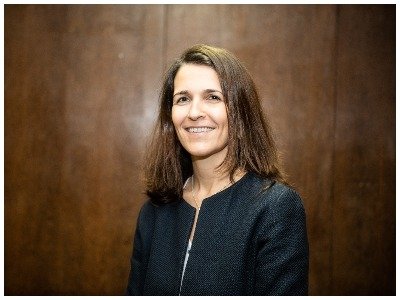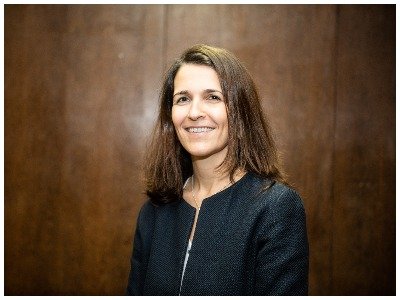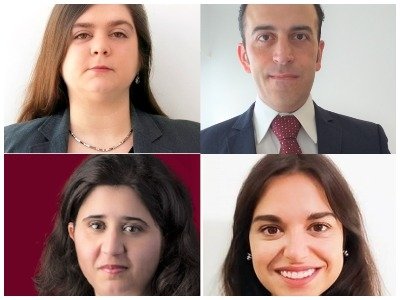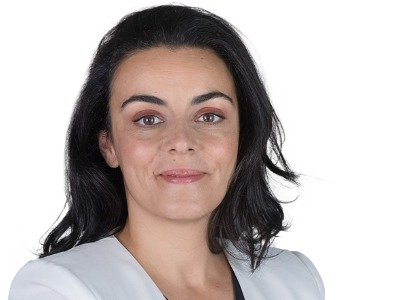Flying through the heart of the pandemic storm

In a women’s edition aimed at showcasing professionals in the sector, Iberian Lawyer had the pleasure of interviewing Stéphanie Sá Silva, general counsel of TAP. During arguably the most challenging period the aviation sector has ever faced, Stéphanie provides us with a fascinating insight into the challenges of TAP’s in-house legal team. Her account of the last 12 months is transparent, thorough and uncovers just how demanding and how reliant companies such as TAP are on their legal teams during these unprecedented times.
 During the pandemic, did the company carry out any emergency/help plan or any action that you would like to share with us?
During the pandemic, did the company carry out any emergency/help plan or any action that you would like to share with us?
From the very beginning of the COVID-19 outbreak back in March 2020, TAP Air Portugal took action to face the impact of the pandemic on its activity. Firstly, the company took measures to ensure the protection of workers and passengers’ health, namely through the implementation of a contingency plan, the adoption of a new standard for hygiene, health and sanitary safety – TAP Clean & Safe – and the inclusion of a COVID-19 insurance in its offer. TAP Air Portugal also adjusted its operational capacity to the fall in demand and to travel restrictions imposed by national and foreign authorities. In parallel, the company adopted a set of measures aimed at preserving its cash position, in particular by controlling and reducing costs, including the suspension or delay of non-critical investments, the renegotiation of commercial agreements and payment schedules, cuts on incidental expenses, the suspension of new staff recruitment and promotions, the temporary recourse to lay-off, as well as the implementation of temporary unpaid leave programs. Finally, since the pandemic outbreak, TAP Air Portugal has been committed to playing an active humanitarian role, notably through the execution of repatriation flights, the transportation of medical and humanitarian cargo (including COVID-19 vaccines more recently) and the production of face shields, while ensuring the territorial continuity, between mainland Portugal and the autonomous regions of the Azores and Madeira.
During our LegalDay, you mentioned that, as a consequence of the COVID-19 pandemic, international aviation had fallen to 1990’s levels. The travel and leisure markets are among the affected sectors. A year after the first cases of COVID-19 in Europe, how have the priorities of the legal department changed?
According to the latest report issued by the International Civil Aviation Organization (ICAO), the estimated COVID-19 impact on global scheduled passenger traffic for the year 2020, compared to 2019 levels, saw an overall decline of 60% in passengers and approx. USD 371 billion loss of gross passenger operating revenues of airlines. These numbers alone show the tremendous and unprecedented impact this pandemic has had on aviation worldwide (not comparable, for instance, with the consequences of the 9/11 terrorist attack, the SARS or the recent international financial crisis). The company had to tackle the many challenges brought by this pandemic, namely from a financial and operational standpoint. The priorities of the legal department were adjusted accordingly.
What tasks requires most of your energies?
Among other tasks, my energies are focused on planning activities, as well as managing my team and the recourse to external legal counsel. There is a permanent focus on ensuring an efficient allocation of resources, a qualified legal assistance and a timely response, according to defined priorities and budget. I also dedicate a significant part of my time providing legal assistance, as well as handling more complex or strategic matters assigned to the legal department.
How many people work in the legal department you lead today? Have you grown the team?
The team is currently composed of one Head of Legal / General Counsel, 13 lawyers, the head of Institutional Relations and Regulatory Affairs, the head of Ethics & Legal Compliance, our Data Protection Officer and 5 assistants, a total of 22 employees. From 2018 until the pandemic outbreak in March 2020, the team grew slightly as a result of the legal department having a broader scope of action. For instance, an area of Ethics & Legal Compliance was created, we started rendering legal services to all the TAP Group (not only to TAP Air Portugal) and we built a new area of expertise in corporate and financial law. The size and level of specialisation of the legal department were decisive to address the needs of TAP Group in a period of growth and where relevant financial transactions occurred, such as the first bond issuance of TAP Air Portugal to be listed in the stock exchange Euronext Lisbon (in 2019).
What did you do following border closures and the cancellation of flights? Did you change your rebooking and refund policies?
The COVID-19 pandemic has caused the worst crisis in the history of the aviation sector. This pandemic resulted in the collapse of the demand, as well as in many travel restrictions adopted by national authorities as a means to counter the propagation of the disease. Like other airlines, TAP Air Portugal has been continuously adjusting its operations to this evolving situation, in a context where travel restrictions are constantly changing. Within the framework of EU Regulation No. 261/2004, TAP Air Portugal implemented policies to enable more flexibility to its customers, for instance by allowing the free rescheduling of trips and offering the option to receive a refund through a voucher under certain conditions.
Did you work to repatriate nationals abroad notwithstanding the border closures?
Yes, up until recently, our company operated more than 85 repatriation flights, to three continents (Europe, Africa and South America) and to circa 13 countries (Portugal, the Netherlands, United Kingdom, France, Angola, São Tomé and Príncipe, Guinea-Bissau, Cabo Verde, Mozambique, Venezuela, Morocco, Brazil and Peru), enabling approximately 12 thousand people to return home.
What legal impacts do you expect from the new travel rules of 2021?
In the airline sector, one of the major challenges posed by this pandemic relates to the constant changes in travel rules across the world. One day, flights to a certain destination have no restrictions, the next they are prohibited, or passengers are required to quarantine and/or present a negative COVID-19 test. These challenges will most likely continue in 2021, despite the positive prospect of mass vaccination against COVID-19. In 2021, we may wish for more coordination at the European level in what concerns the adoption of travel restrictions, which lacked in 2020.
How do you select your external legal advisors?
Our selection of external legal advisors is based on a competitive procurement process, which is defined on a case-by-case basis, namely in terms of targeted firms, depending on the scope and complexity of the specific advice or other assistance needed, as well as on the available budget. The choice of an external legal advisor is driven by a set of different factors, namely knowledge and experience, availability, capacity to provide business-oriented advice, competitive fees and the absence of a conflict of interest.
Are fees an essential factor you consider when choosing your legal advisors?
In the current context of the crisis affecting the whole air transport sector, budget inevitably plays a fundamental role when choosing a legal advisor. However, the trend is that other criteria become increasingly important in the selection process of service providers, notably those related to the values upheld by the provider (ethics, compliance, sustainability, gender equality, etc.) and their adequacy with the ideals and market positioning of the client company. To some extent, law firms are already adapting to this reality, encompassing these concerns within the scope of their organisation and commercial proposal.
How is the legal tech evolution impacting your organisation and your relationship with external advisors?
The pandemic has brought a clear technological evolution in the way legal services are rendered. As a consequence of COVID-19 preventive measures adopted by the authorities, teleworking and remote meetings (through electronic means) have become a common reality in the past months. The overall assessment is positive, both from the perspective of the legal department’s organization and from the perspective of our relationship with external advisors, as it brings more efficiency and flexibility.
Interview by Michael Heron.
To read the interview in full please download issueN.102 here.












